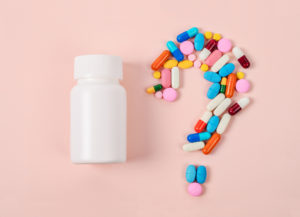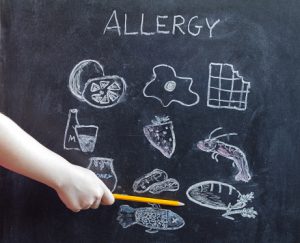If taken correctly and not used to inappropriately combat viruses, antibiotics can be extremely effective in preventing the spread of infection. While there is a great deal of information circulating about the misuse or overuse of antibiotics, there is relatively very little shared about the underuse of antibiotics due to suspected allergies.
Many Americans are under the impression that they are allergic to antibiotics, but according to a recent New York Times article, it is estimated that up to 90 percent of antibiotic allergy claims are not legitimate. So why do so many people believe they are allergic when they are not? Most often it is not the individual’s fault; they were either falsely told by their parents that they were allergic to antibiotics when they were a child or they do not understand what constitutes an allergic reaction.
In reality, many individuals experience some type of reaction after taking antibiotics, such as an upset stomach, headache or diarrhea. These bodily responses are considered side effects, and should not be classified as an allergic reaction. A true allergic reaction is when your body treats the medication entering your system as an invader and releases chemicals called histamines to attack it.
Symptoms of a mild allergic reaction can include the development of a rash, swelling of the face, or some difficulty breathing. For most mild reactions, medications such as antihistamines or corticosteroids can be taken to treat symptoms.
In rare case however, some experience a more severe allergic reaction, known as anaphylaxis. Symptoms of an anaphylactic allergic reaction include:
- Difficult or noisy breathing
- Swelling of the tongue
- Swelling or tightness in the throat
- Wheezing or coughing
- Dizziness or fainting
- Pale complexion
Signs of an anaphylactic allergic reaction usually present within an hour of taking an antibiotic. If this type of reaction occurs, medical attention is necessary and 911 should be called immediately. Treatment for a severe allergic reaction often requires an epinephrine injection to alleviate the symptoms.
While many antibiotic allergy claims are false, there are some people who are truly allergic. For those who truly are allergic, the antibiotic that they are most frequently allergic to is penicillin, or other antibiotics that are closely associated with it. Those who suspect that they are allergic to penicillin can confirm it with a simple skin test.
With the rise of so many “super-bugs,” proper treatment of infections using the correct course of antibiotics has never been more important. Limiting the number of medications you can receive because you think you are allergic can prove to be very dangerous or even fatal.
If you believe you are allergic to antibiotics, but are not certain, speak to your doctor. Together you can discuss the pros and cons and arrive at an appropriate course of treatment.
Flushing Hospital’s Ambulatory Care Center has many qualified doctors who can advise you on the correct use of antibiotics. To make an appointment, please call 718-670-5486.
All content of this newsletter is intended for general information purposes only and is not intended or implied to be a substitute for professional medical advice, diagnosis or treatment. Please consult a medical professional before adopting any of the suggestions on this page. You must never disregard professional medical advice or delay seeking medical treatment based upon any content of this newsletter. PROMPTLY CONSULT YOUR PHYSICIAN OR CALL 911 IF YOU BELIEVE YOU HAVE A MEDICAL EMERGENCY.


